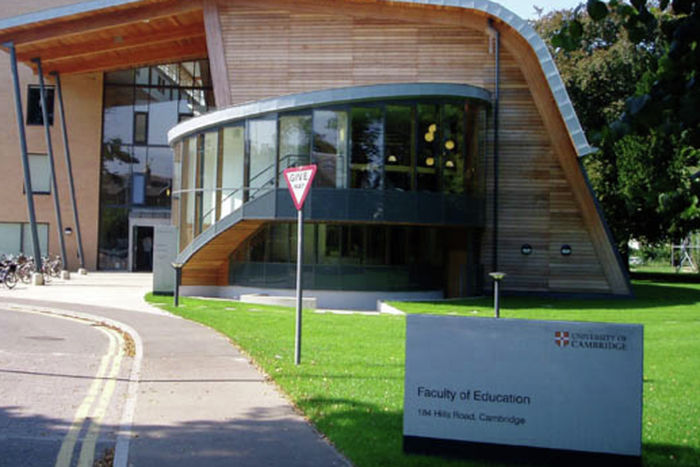A Varsity investigation into the recently-established Foundation Year Course finds students were largely confident in the success of the course, which intends to balance out educational disadvantages in a year-long pre-degree course.
However, while students praised the “intellectually stimulating” nature of the course, they also raised concerns about “disorganised” pastoral support and “unfair” assessment for progressing to a BA degree course.
Describing itself as a “stepping stone” to studying at Cambridge, the Foundation Year in Arts, Humanities, and Social Sciences was established in 2022 as a pre-degree multidisciplinary course to prepare students who have experienced educational disadvantage to study at Cambridge.
Data acquired by Varsity through Freedom of Information requests reveals that 60% of students, on average, progress onto a Cambridge BA.
However, there has been a steep decline in the proportion of students continuing on to a Cambridge BA after the first year, from 34/47 (72%) in 22-23 to 20/42 (48%) in the 23-24 cohort.
Varsity spoke with multiple students to understand their experiences of the programme, and if they felt the course succeeded in its aim of addressing educational disadvantage.
Nio, a 23/24 Foundation student and now a first-year at Sidney Sussex, said, “For me, it definitely succeeded”.
Freddie, a 22/23 student, agreed, “I felt that I had ‘gaps’ in my knowledge and cultural capital before coming here, due to circumstances beyond my control. I felt that the course filled these gaps and opened new avenues I hadn’t previously been aware of.”
However, students reported that entering college and university life, particularly following the challenging experiences or educational disadvantages that many on the course faced, was not easy.
Another student from the 22/23 cohort told Varsity that the lack of pastoral support was “a bit ridiculous […] given that they were bringing in people from disadvantaged backgrounds, some who had been disadvantaged because of illness or mental health issues”.
They added: “people are just told to intermit, rather than actually helping them deal with it.”
A 24/25 student commented the Department “tried their best to support us,” but that it was “really college-dependent how well you were looked after, pastorally and academically” and “all a bit disorganised,” or required students themselves to reach out.
However experiences varied, as another student noted constrastingly that both their DoS and college tutor were “very attentive”.
The sense that students developed rigorous methods of academic research, and built their self-confidence, was clear.
A student from the 23/24 year found the course helped him develop both academic and practical skills for further study, leaving him feeling especially prepared for BA study.
He told Varsity: “I felt it supplied me with various academic skills – such as essay-writing, researching, and time-management – that I treasure while on tripos.” Now having just finished his first year of tripos, he commented, “I’ve felt more able to draw from different disciplines when writing essays”.
Alongside a decline in the portion of students continuing at Cambridge, data acquired by Varsity shows that in all three years a number of students intermitted or withdrew.
In the first three years following the course’s establishment in 2022, data accessed by Varsity revealed that 20% intermitted or withdrew in the first cohort, and 17% in the second, dropping to 10% in the most recent cohort.
The data evidences the number of students intermitting or withdrawing is decreasing, which may suggest the course is becoming more accessible as it continues from its inception.
Freddie stated, he “wouldn’t necessarily put intermitting and withdrawing down to the course itself, but just that university itself isn’t for everyone".
But he also felt the academic intensity of the course could have been more clearly advertised, as he found there hadn’t been much information about the course’s content and make-up, and suggested students may have been surprised by the high workload.
Another student suggested the intermission rates are down to inadequate pastoral support, stating, “people are just told to intermit, rather than actually helping them deal with it.”
Meanwhile, the need for more centralisation of the course was also evident in regard to the assessment for students to continue.
The 24/25 Foundation Year Subject Representative told Varsity: “I think it is unfair that a student’s college can lead to a significant change in a student’s chances of progression. Some colleges have let students progress with grades under 60%, where other colleges have barred progression for students who achieved 64% even with extenuating circumstances.”
In response, a University spokesperson told Varsity: “Colleges consider students who achieve 60-64% on a case-by-case basis”.
Rather than applying for a Cambridge BA through the standard UCAS application process, Foundation Year students are made offers through a separate assessment process during the year, conditional, according to the department website and students, on achieving a score of 65% or above in the Foundation course.
The portion of students achieving the lowest grades, of 60 or below, on the course, has risen from 12% (6) in the 22/23 year to 36% (15) in 23/24 and 43% (20) in 24/25, alongside higher portions of the cohort completing the year and sitting the final exams.
The most popular course students continued onto was HSPS by far, with both cohorts featuring students progressing onto over ten different degree courses.
A University spokesperson told Varsity:
“The Cambridge Foundation Year was developed to support progression to Cambridge or other highly competitive courses and universities for UK students who have experienced significant disruption and/or disadvantage in their education.“It does not guarantee a pathway to study at Cambridge, but over the years since it launched, the teaching and assessment of the programme has adapted to ensure it provides the best inclusive approach to education we can offer without compromising the academic standards required to support students to move beyond the Certificate successfully.“We are proud that the support and expertise that Foundation Year students receive has resulted in a completion rate of 97%, which compares extremely favourably with other foundation years.”


